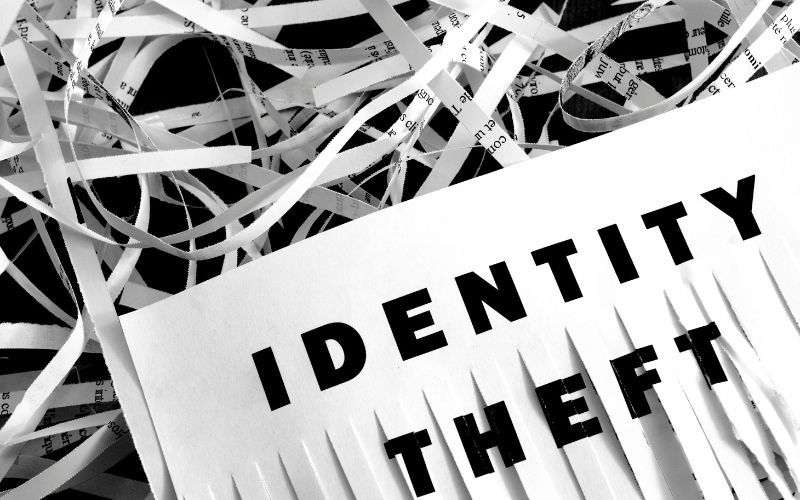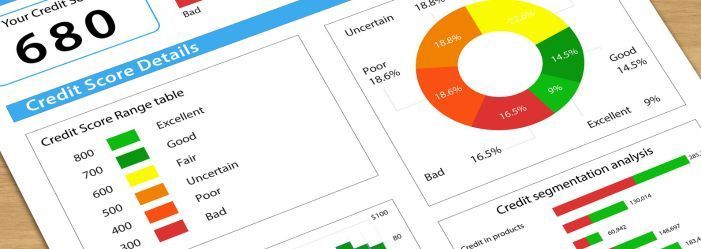Last Updated: March 14, 2024
The Hidden Impact of Identity Theft on Your Financial Health
Disclaimer: We are not qualified legal or tax professionals and are not giving advice. Always speak with a qualified professional before making any legal or financial decisions.
In an era where our financial lives are increasingly digital, the specter of identity theft looms larger than ever. It's a crime that can strike when least expected, turning your financial stability on its head and leaving a trail of chaos in its wake.
But beyond the immediate shock and disruption, one question often rises to the forefront: Can identity theft ruin your credit score? The short answer is yes, and the implications can be far-reaching.
In this article, we delve into the mechanics of how identity theft can impact your credit, unraveling the complex interplay between fraudulent activities and your credit health. From unrecognized transactions that mysteriously appear on your bank statements to sudden, inexplicable drops in your credit score, we explore the signs of identity theft and offer actionable strategies to mitigate the damage and safeguard your financial future.
Join us as we navigate the murky waters of credit fraud, arming you with the knowledge to protect your most valuable financial asset, your credit score.
Don't want to read through the article? Speak to a debt specialist right now.
The Signs of Identity Theft
Experts list some different clues that may hint at identity theft. Let's take a look at each one.
Unrecognized bank or credit card transactions
Always check over your bank statements and credit card bill to see if there are any suspicious charges. If you do not recognize the charge or transaction, you can google the business name. If you still do not recognize it, call the bank or credit card company to report possible fraudulent charges.
Sometimes scammers will start with small charges or fraudulent transactions and if those are not noticed, they will ramp up their credit card theft.
Unfamiliar inquiries on your credit report
Make checking your credit report a regular habit. You can sign up with each of the big three credit reporting agencies to monitor your credit history for free. A paper copy is available for free once a year. Look for inquiries that you do not remember authorizing.
All three credit bureaus (Equifax, Transunion, and Experian) allow you to put a security freeze on your credit reports. These will not allow a hard pull on your credit report without you unfreezing it. It is a simple process and is free.
Unexpected bills or statements
Got a bill in the mail that you did not recognize? Don't throw it away thinking it was a mistake. Follow it up - it could be for fraudulent purchases.
Unexpected lack of bills or statements
Have bills that you regularly receive suddenly stop showing up either through snail mail or email? Follow up.
Surprise credit score drop
You've been paying bills on time and know your credit score is good. Why has it suddenly dropped? Someone has probably been using your good credit for themselves.
Follow up immediately with the credit bureaus.
Denial of loan or credit applications
You know your credit is good, so you apply for a loan, only to be denied. It very well could be a fraud. Ask the lender why and then follow up.
Calls from debt collectors
The debt collector may have gotten your number wrong or someone randomly put down your number instead of theirs. Or it could be identity theft. Again, don't hang up. Follow up and find out what is going on.
What if you experience identity theft
Step 1. Don't ignore any warning signs
Be aware of your finances and check your credit scores regularly. If something seems wrong or unusual, follow up immediately. It can be very difficult to reverse the effects so do not wait.
Step 2. Contact the credit bureaus
If you think there has been suspicious activity, contact each of the credit bureaus and freeze your credit reports. Examine your credit history and correct anything that is wrong.
Step 3. Check your credit reports
You are entitled to one free paper copy a year from each of the credit bureaus. Request your free credit report in, for instance, January from Equifax, then one from Transunion in May, and Experian in September. Repeat that cycle.
Or easier still, sign up with each of the credit bureaus to check your report regularly. Credit Karma reports both Equifax and Transunion. Www.AnnualCreditReport.com is an excellent resource and is free.
Step 4. Close the fraudulent cards, loans
Immediately close any fraudulent cards and loans. Get credit cards reissued.
Step 5. Create an identity theft report with the Federal trade commission
Go to https://www.identitytheft.gov/#/ to file an FTC identity theft report. This governmental website offers information and recovery plans to stop id theft.
Step 6. File a police report
Contact your local law enforcement agency and file a police report.
Keep all the documentation safe. You may need good records in order to prosecute identity theft and recover your good name.
Dispute incorrect information on your credit report
One scary fact about our dependence on credit reports and credit scores is that about 20% of people have an error on their credit reports. Often, these errors are hurting your credit score, and cleaning them up will help raise your score.
You are entitled to one free paper copy a year of consumer credit reports from each of the credit bureaus. Request them as we recommended above and check them carefully. Or sign up at www.AnnualCreditReport.com
If you find errors, contact the bureau and the business making the report. If the credit bureau requires a dispute form, fill that out and keep a copy for your records. Send copies of supporting documents. DO NOT send the originals. Follow up regularly until it is corrected and then ask for a copy of your repaired credit report.
Consider Identity Theft Protection
Identity theft protection is an insurance that helps you to repair identity theft damage. It costs, but it can be worth the cost.
Be aware that there are identity theft protection scams out there. Research the company before you sign up.
Monitor Your Credit Reports Often
You are entitled to one free paper copy a year from each of the major credit bureaus: Transunion, Equifax, and Experian.
Request them as we recommended above and check them carefully. Or sign up at www.AnnualCreditReport.com and check it monthly.
Report and Replace Identification Cards
If you lose your identification cards like your driver's license or they are stolen, report it immediately.
If you misplace your credit card, report it as soon as you have looked everywhere for it. The credit card issuers will immediately prevent charges on the cards and will allow you to dispute any unknown charges. They will then reissue the card. It is a pain to change all your automatic payments, but it is better than identity theft.
Update and Secure Your Online Accounts
Always use two-step verification or bio-metric authentication for your online accounts. Yes, it is annoying. It is less annoying than fighting identity theft.
Change your passwords at least once a year.
If you get fraud alerts that your accounts are compromised, be suspicious, but take action through the company's verified website. DO NOT click on the link in the email.
Place a fraud alert with all three credit bureaus
If you suspect fraud, you can have a fraud alert placed on your accounts. These will notify creditors to take precautions in verifying your identity.
You can sign up for one year, seven years, or an Active Duty Military alerts.
Sign Up for Informed Delivery From the USPS
The US Post Office estimates that 1.7 million cases of mail theft take place daily. Not annually or monthly - daily. That is pretty scary. In addition, more than 1/3 of Americans have experienced mail theft. Other mail delivery services have similar theft rates.
To protect yourself, consider getting a secured mailbox. You may also want to sign up for Informed Delivery from the USPS. This will notify you about incoming mail and packages.
Review your credit card statements
Look over credit card transactions for odd charges. Small charges can be the first signs of identity theft as thieves use small charges to see if the card is unmonitored.
Start Rebuilding your credit after identity theft
Once you have stopped the identity theft, you will need to rebuild your credit. You can get started even if your case is going to court.
First, check your credit reports for inaccurate information.
Next, pay your bills on time every month.
Then pay down any credit card debt.
Work on paying down the rest of the debt.
It will take time to rebuild your credit but it can be done.
FAQs
Conclusion
Identity theft is a growing crime. The reports of identity theft and fraud have increased each year. Last year, 5.7 million reports were made to the FTC, an increase of 1 million cases from the previous year. The FBI reports that cybercrime losses this year are expected to be $10.2 billion. This number is almost double last year's cyber-crime losses.
Identity theft is a huge issue. By being alert on your credit reports, emails, and credit card accounts, you can keep yourself safe. As with all financial issues, attention is important.
*Disclaimer: Pacific Debt Relief explicitly states that it is not a credit repair organization, and its program does not aim to improve individuals' credit scores. The information provided here is intended solely for educational purposes, aiding consumers in making informed decisions regarding credit and debt matters. The content does not constitute legal or financial advice. Pacific Debt Relief strongly advises individuals to seek the counsel of qualified professionals before undertaking any legal or financial actions.
Reduce Your Credit Card Debt By Up to Half

BBB Reviews | 4.9/5.0 Rating










 Do Not Sell My Personal Information
Do Not Sell My Personal Information